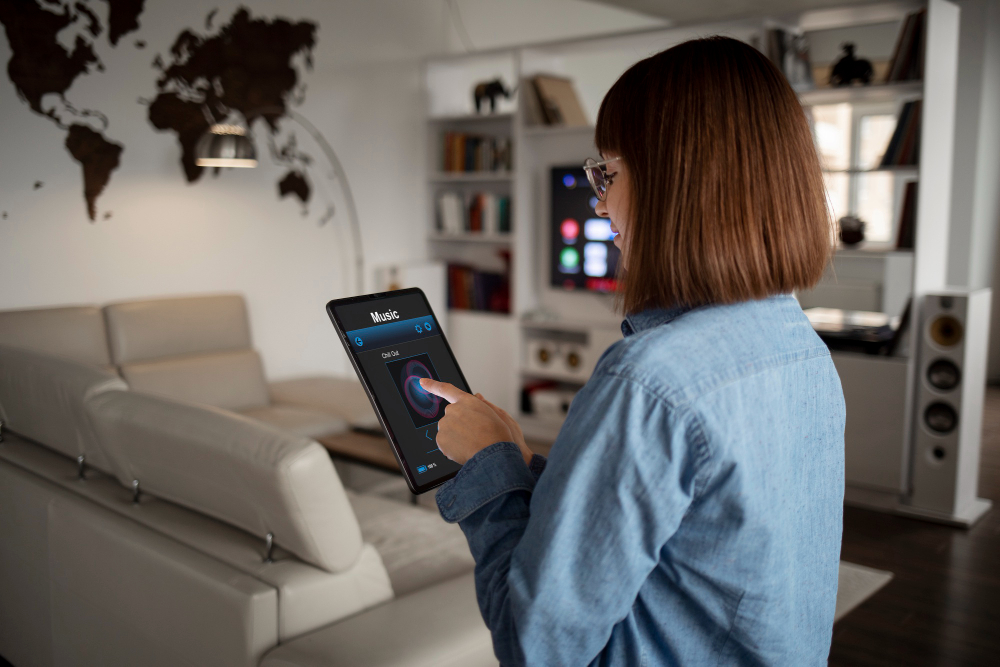Smart Home Insurance: Protect Your Connected Lifestyle with the Right Coverage
Explore how smart home insurance enhances protection for connected devices, reduces risks, and saves money.
Smart homes need smart protection—insure your connected lifestyle wisely.
As technology reshapes our daily lives, homes are becoming smarter, safer, and more efficient. From voice-activated assistants to automated locks and security cameras, smart devices are now an essential part of modern living.
But with increased connectivity comes new vulnerabilities. That’s where smart home insurance comes in—offering specialized protection for digital lifestyles. This coverage ensures peace of mind by aligning traditional home insurance with today’s evolving technology.
Whether you already have a smart home or are planning one, understanding this type of insurance can help you better protect your assets, your privacy, and your peace of mind.

What Is Smart Home Insurance?
Smart home insurance is a modern upgrade of traditional homeowners insurance, adapted for homes equipped with connected technology.
It typically covers physical damages, theft, cyber risks, and even proactive loss prevention.
This type of policy often rewards homeowners for using smart devices—like leak detectors, fire alarms, or security systems—by offering premium discounts or added protections.
Insurers recognize that homes with smart technology are less likely to suffer catastrophic losses, making them less risky to insure.
Why You Need It
The more connected your home becomes, the more you need tailored protection. Smart devices can malfunction, get hacked, or fail during power outages.
A standard homeowners policy might not cover issues stemming from these devices. Smart home insurance fills that gap by offering broader, tech-specific coverage.
If your smart thermostat causes a burst pipe or your security system is breached, having the right policy can make all the difference.
Key Features to Look For
Look for smart home insurance that includes:
- Device Protection: Covers smart locks, thermostats, lights, and other IoT gadgets.
- Cybersecurity Coverage: Protects against hacks and data breaches.
- Discounts for Devices: Premium reductions if you use qualifying smart tech.
- 24/7 Monitoring Services: Some insurers offer monitoring or app-based alerts.
- Proactive Loss Prevention: Coverage may include maintenance alerts or risk assessment tools.
These features ensure your policy goes beyond repairs and replacements—it helps prevent problems before they occur.
Insurance Companies Are Evolving
Major insurers have begun to collaborate with tech companies to offer bundled services. For example, you might receive a free smart leak detector for installing and syncing it with your home insurance account.
Some insurers also offer real-time risk assessments using connected devices, helping you understand vulnerabilities and take action before disaster strikes.
This integration of technology into insurance marks a shift toward proactive risk management rather than reactive claims processing.
Benefits of Smart Home Insurance
There are several compelling reasons to opt for smart home coverage:
- Lower Premiums: Reduced risk often equals lower monthly costs.
- Faster Claims: Smart data can speed up verification and claims processing.
- Improved Safety: Connected devices help detect problems early.
- Custom Policies: Coverage can be adjusted based on your home’s technology level.
These advantages make smart home insurance a win-win for both policyholders and providers.
Common Misconceptions
One common myth is that smart home devices make insurance unnecessary. On the contrary, while these devices reduce certain risks, they can introduce new ones—like software vulnerabilities or data exposure.
Another misunderstanding is thinking any home insurance automatically covers smart tech. In reality, many policies require separate endorsements or riders to include advanced technology.
Always read the fine print and consult your insurer to ensure your devices are fully protected.
Tips for Getting the Right Coverage
When shopping for smart home insurance, follow these steps:
- Inventory Your Devices: Know what’s installed and how it functions.
- Compare Providers: Look for companies offering smart home-specific benefits.
- Ask About Discounts: Many insurers offer reduced rates for certain devices.
- Read Policy Terms Carefully: Understand what is and isn’t covered.
- Update Regularly: As you add new technology, make sure your policy keeps pace.
Being proactive can ensure you’re not caught off guard when an incident occurs.
Future of Smart Home Insurance
As smart technology becomes standard, insurance will continue to evolve. Expect more personalized coverage, real-time monitoring, and AI-driven risk analysis.
Smart homes may even help prevent losses altogether, shifting the role of insurance from compensation to prevention.
This transformation is good news for both consumers and insurers.
Conclusion
Smart home insurance is more than a modern trend—it’s a necessary adaptation to the way we live today. With tailored protection, proactive monitoring, and device-based discounts, this coverage is designed to meet the needs of the connected homeowner.
In a digital age, smart protection isn’t optional—it’s essential.





